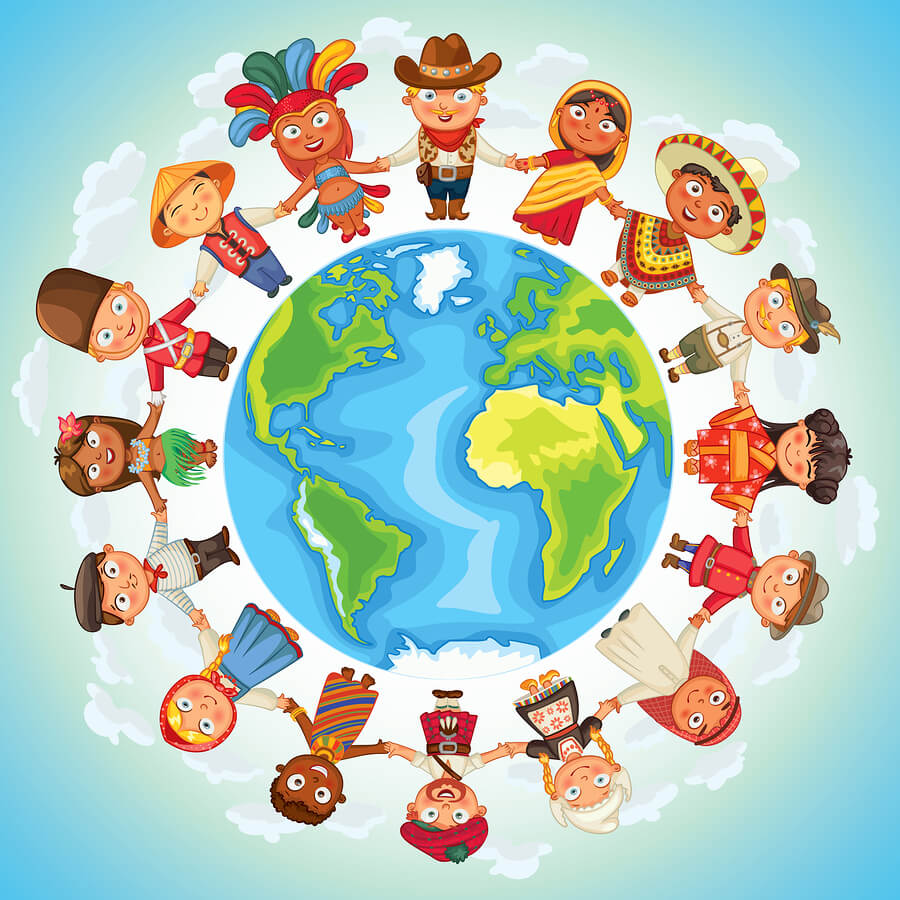What Cultural Traditions Mean
Culture, like language, defines a human population. It fosters a sense of identity in the same way as language does. If you can speak the same language as others, you generally share many of their cultural traditions. Today, many of these distinctive cultural traditions are changing fast, taken over by a more uniform, globalized, consumer-centered culture. Colombians may speak Spanish, Vietnamese may speak Vietnamese, and Moroccans Arabic and Berber, but they all recognize MacDonald’s beef burgers and Big Macs! Culture is important for many people because it gives them a sense of identity, but the homogenization of culture that is happening today means that that very sense of identity is gradually disappearing. No one seems to be sure if that is bad or good.
Interesting Cultural Traditions Around the World
There are literally hundreds of unique cultures around the world. Visitors from one culture are often surprised, amused, or even horrified when they first encounter another culture. After a time these impressions fade as people realize that humanity is more or less the same all over the world. It often comes down to cultural translation, which is the ability to understand what cultural oddities actually mean.
Take the French kiss, for example. Many people in Europe kiss on the meeting, but the French have elevated kissing as a greeting to an art form. It takes time to appreciate that there are different ways to kiss, depending on how familiar you are with the person you are greeting. Australians, on the other hand, prefer a firm handshake, Americans a hug or a pat on the back, Maori New Zealanders a hongi (a touching of the nose), while Indians put the palms of their hands together in front of them as a greeting. They all mean more or less the same when they are translated, but the differences can take time to learn, just like language.
Tradition and Translation
Cultural customs around the world may mean the same thing in principle, but they take time to learn. Traditional customs do need to be translated if they are to mean anything to those who don’t share that culture. The importance of cultural translation cannot be underestimated as it is essential if people of different cultures are to get on peacefully and co-operate together.
Culture and tradition are important to take into account when visiting another part of the world, or even within your own borders where people of different cultures rub shoulders. Take the practice of pointing in the western world, for example. In many African cultures, as well as Islamic culture in other parts of the world, it is rude to point with the finger at something, especially another human being. It is fine, however, to use the thumb! In Nicaragua, in a totally unrelated cultural tradition, people use their lips to point at something. It takes practice to learn what to do, but this sort of cultural translation is important to communicate effectively.
Summary:- There is a need for cross-cultural translation
In a way, it is a bit of a contradiction that there is a surge in the demand for language translators at present, but not for cultural translators. The world is globalizing fast and there is recognition everywhere that language translation is essential for communication in the modern world. However, there is a significant lag in the recognition that there is also a need for cross-cultural translation. One wonders just how much violence, unease, and war might not have happened over the centuries had cultural translators existed to teach all of us, world citizens, what other people were trying to say with their actions.




















